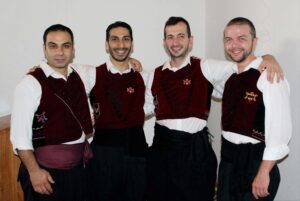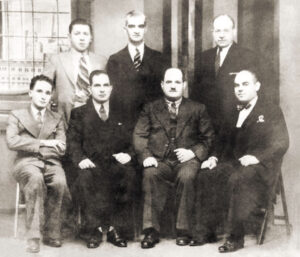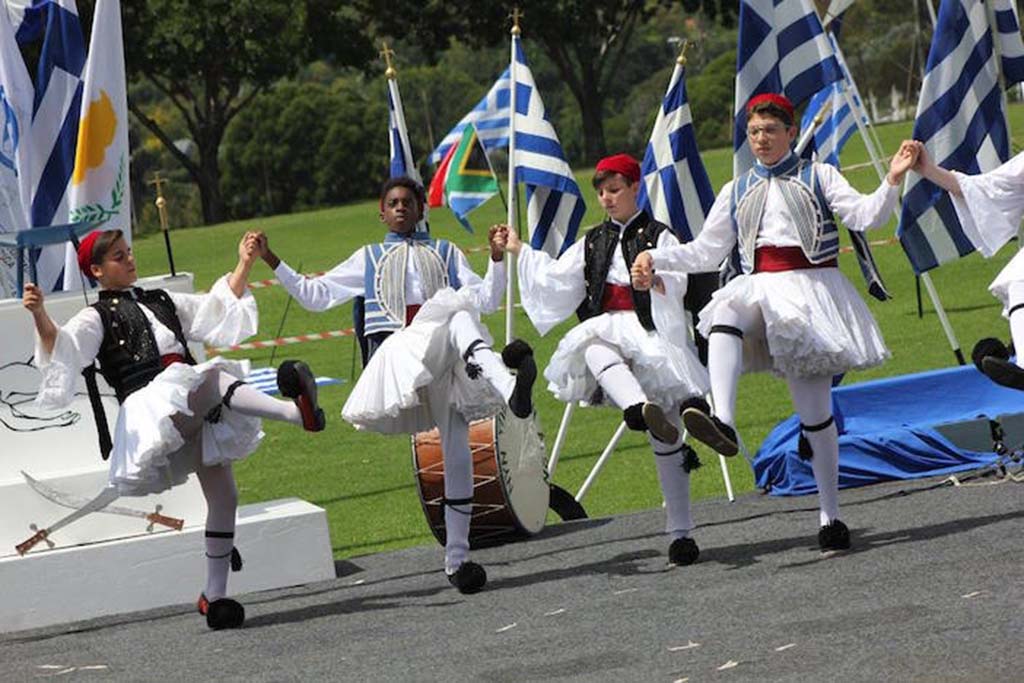Although the rise of crime and economic hardship post-apartheid forced many Greeks and Cypriots to leave South Africa, there are approximately 35,000 left says PAUL LAMBIS
Ever since the early Greek and Cypriot immigrants made the epic trek from Europe to southern Africa in the late 19th century, they have remained one of the leading lights of Hellenism across the diaspora.
Despite being persecuted and subjected to discrimination for many years, particularly between 1915 and 1917 when violent riots, instigated by the British and the Boers, broke out against Greek shops and businesses (Greece remained neutral during WWI and anyone who was not allied to their war was considered an enemy), the Greek and Cypriot communities in South Africa managed to increase in number and advance socially, becoming reputable business owners and professionals who continue to have a significant impact in a variety of different fields and industries in South Africa today.
Although now fewer in number although still widely regarded as hardworking and family-oriented, South African Greeks and Cypriots continue to be distinguished by their vibrant spirit and love of life, even though unemployment, crime, and corruption remain the three most significant problems within the country.
According to President of the Hellenic Federation of South Africa John Spyridis the Greek and Cypriot communities have actively promoted Hellenism among what is arguably one of the most culturally diverse populations in the world. “Our organisation currently has 38 members, eight of which are cultural societies, three benevolent societies, and the remaining Hellenic communities that are dispersed throughout South Africa.
“We work very closely with all these organisations, and we keep enhancing their individual efforts, which promote Greece, Cyprus, our religion, culture, traditions and language,” he added.
Founded in 1974, the Hellenic Federation of South Africa has been instrumental in preserving the Hellenic profile in South Africa for nearly half a century, organising initiatives and planning events that support the shared Hellenic culture.
In 2021, the Greek community in South Africa commemorated the bicentennial of the Greek Revolution through a fund-raising initiative by creating the world’s largest handsewn Greek flag. “The 1,500 square metre giant flag was seen as a symbol of the fabric of our South African Hellenic community, the golden thread that binds us all and connects us to our history,” Spyridis told Living.

Cypriot dancers
Amid Covid restrictions and limitations on attendees at public events, the Hellenic Federation of South Africa proudly raised the Greek flag as representatives from Greek and Cypriot communities and societies across the region marched past in a celebratory parade event that was livestreamed to Hellenic communities around the world. “It was a momentous occasion, and we are very privileged to be living in a country where diversity and cultures are embraced and allowed to flourish,” Deputy President of the Hellenic Federation of South Africa Evie Eleftheriadis said.
Like all other Hellenic communities of the diaspora, the Hellenic Federation of South Africa, along with the Cypriot Brotherhood and Cyprus High Commission of South Africa, continue to promote Cyprus’ unique cultural heritage, while raising awareness of the Cyprus issue and humanitarian ideals worldwide.
“The Cypriot community in South Africa provided significant financial help to the victims of the Turkish invasion in the island in 1974,” according to Eleftheriadis. “The Strovolos Elementary School was created and almost one thousand orphans were supported thanks in large part to the Cypriot Brotherhood’s major contribution.”

The Cyprus brotherhood of South Africa, 1934
The Cypriot Brotherhood of South Africa, which was founded in 1934, assisted immigrants from Cyprus and continued to give financial support, not only to Greeks and Cypriots who sought refuge in South Africa during WWII, but also by making sizeable donations to the mayor of Johannesburg in support of the South African war victims.
Over the years, the brotherhood has remained steadfast in raising funds through social events and functions in support of the construction of churches and community schools across South Africa.
Although the rise of crime and economic hardship that followed post-apartheid forced many Greeks and Cypriots to leave the country, there are approximately 35,000 Hellenes in South Africa today. Both Spyridis and Eleftheriadis said that despite a dramatic fall in numbers, the Hellenic Federation of South Africa is proud of and highlights the solidarity that the organisation gives to the Greek and Cypriot communities of South Africa.
“We have a strong sense of national identity and many things to be proud of, such as our rich history, beauty of our countries, delicious cuisine, the complexity of our language, and our captivating, vibrant, and lyrical rhythms,” Spyridis added. “And the Hellenic Federation of South Africa unites us all under its large, hospitable umbrella.”







Click here to change your cookie preferences